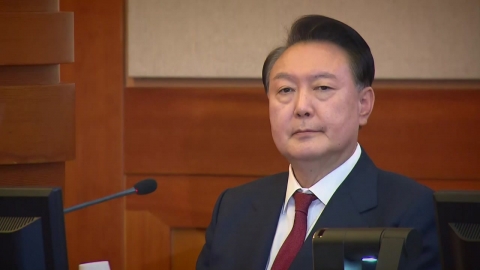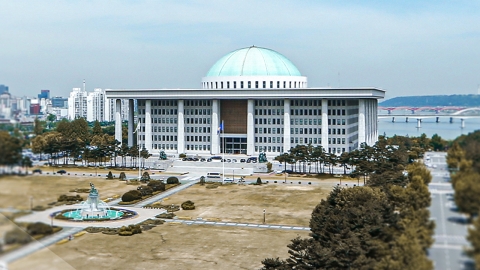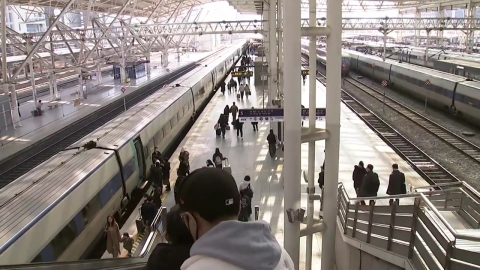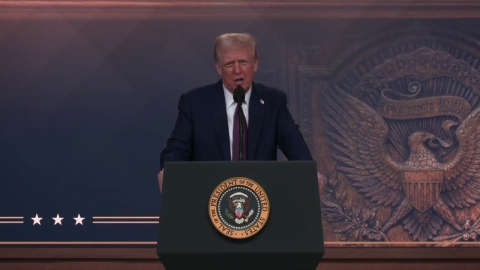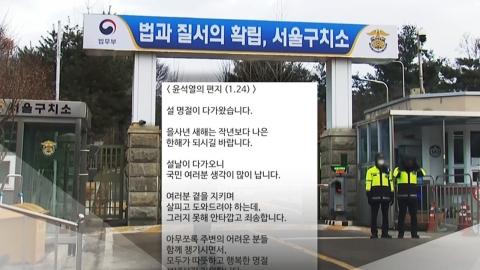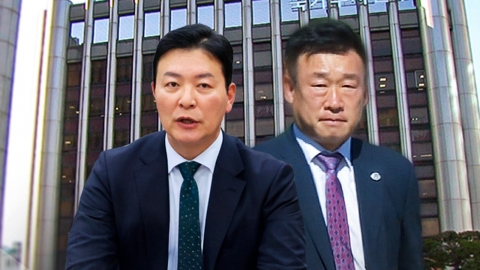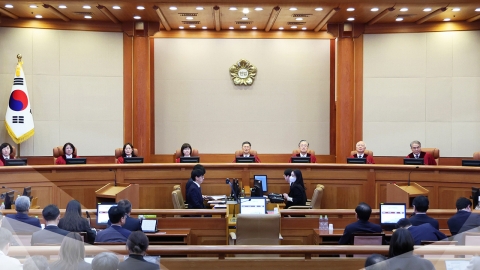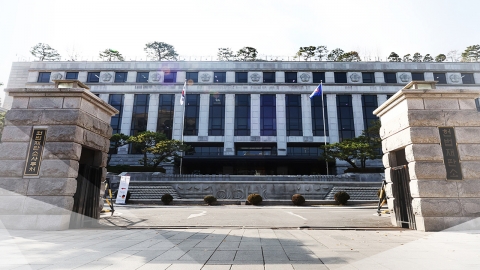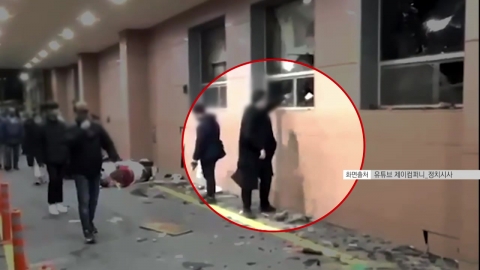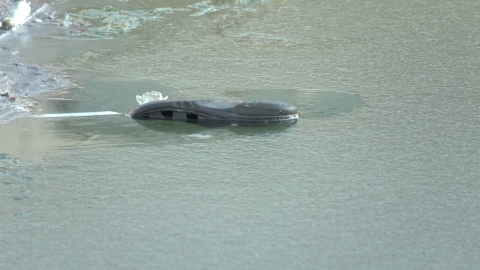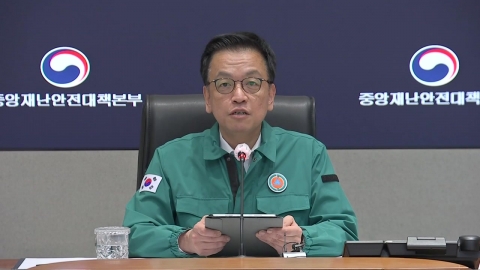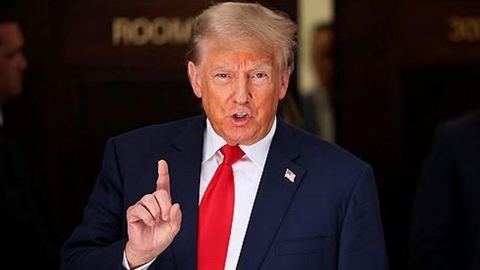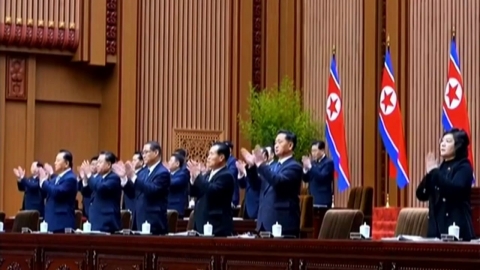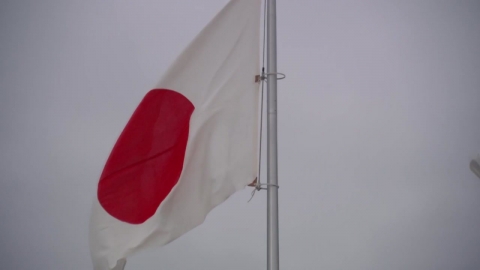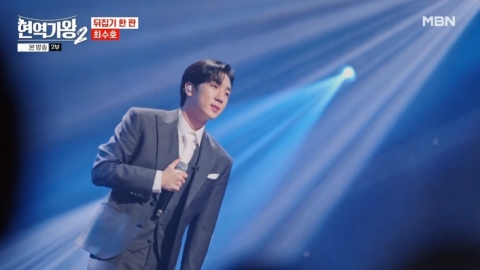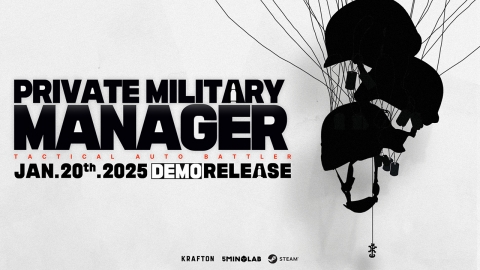-
법원, 윤 대통령 구속 기간 연장 '불허'…대통령 측 "즉시 석방"재생
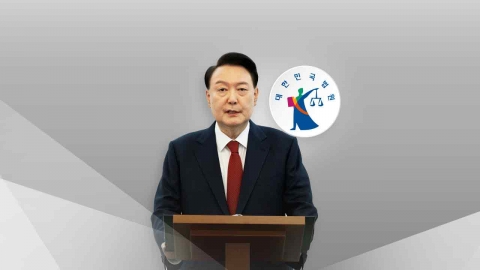
-
법원이 윤석열 대통령의 구속 기간을 연장해달라는 검찰의 신청을 받아들이지 않았습니다. 윤 대통령 측 변호인단은 법원이 공수처법의 취지를 제대로 해석했다며 대통령을 즉시 석방하라고 밝혔습니다. 취재기자 연결해 자세한 내용 알아봅니다. 권준수 기자! [기자] 네, 검찰 비상계엄 특별수사본부는 조금 전 밤 10시 10분쯤, 서울중앙지방법원이 윤석열 대통령의 구속 기간 연장을 불허했다고 밝혔습니다. 공수처 검사가 수사한 사건을 넘기면, 검찰은 공소제기 판단을 신속히 해야 한다는 공수처법 26조를 근거로 들었습니다. 쉽게 말해 공수처가 기소를 요구한 사건은 검찰이 수사를 계속할 타당한 이유가 있다고 보기 어렵다는 겁니다. 그러면서 공수처가 독립된 위치에서 범죄를 수사하게 하는 공수처법의 입법 취지나, 일부 범죄에 대해 공정성 담보를 위해 수사와 기소를 분리한 공수처법 취지 등을 고려했다고 밝혔습니다. 또, 검찰청 검사의 보완 수사권 유무나 범위에 대해 명시적인 규정이 없다는 점도 근거로 들었습니다. 다만, 윤 대통령이 이번 법원 결정으로 곧바로 석방되지는 않을 것으로 보입니다. 공수처가 처음 발부받은 구속영장의 유효 기간까지는 서울구치소 수감 상태가 유지됩니다. 검찰은 그전에 윤 대통령에 대한 구속 기간 연장을 다시 신청하거나, 윤 대통령을 곧바로 구속 상태에서 재판에 넘길 가능성이 있습니다. 앞서 검찰은 공수처가 구속영장을 발부받은 서부지법이 아닌, 중앙지검 재판을 관할하는 서울중앙지법에 구속 기간 연장을 신청했습니다. [앵커] 윤 대통령 측은 어떤 입장인가요? [기자] 윤 대통령 측은 한 마디로, '사필귀정'이라는 입장입니다. 변호인단은 법원이 구속 기간 연장을 불허한 사실이 알려진 지 30여 분 만에 공식 입장문을 발표했는데요. 서울중앙지방법원이 구속영장 기간을 연장하지 않은 것은 사법부의 마지막 자존심이었다며, 법의 취지를 명확히 해석해 올바른 결정을 내렸다고 밝혔습니다. 공수처법의 취지는 수사와 기소를 분리하는 것으로, 검사가 보완 수사할 근거가 전혀 없다는 겁니다. 또 검찰은 공수처의 불법 수사에 편승해선 안 된다며, 오늘 즉시 윤 대통령을 석방해야 한다고 촉구했습니다. 지금까지 사회부에서 전해드렸습니다. ※ '당신의 제보가 뉴스가 됩니다' [카카오톡] YTN 검색해 채널 추가 [전화] 02-398-8585 [메일] social@ytn.co.kr
-
경부고속도로에서 버스 4대 추돌해 13명 부상…역귀성 '정체'재생
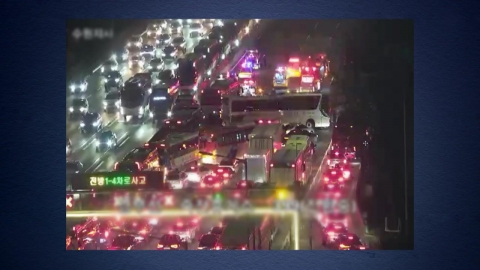
-
오늘 오후 경부고속도로 서울 방향 죽전휴게소 부근에서 버스 4대가 연쇄 추돌했습니다. 이 사고로 13명이 중경상을 입었고, 서울로 오는 역귀성 길이 3시간 가까이 심한 정체를 빚었습니다. 최민기 기자의 보도입니다. [기자] 도로 한가운데 대형 버스들이 어지럽게 널려 있습니다. 유리창이 박살났고, 범퍼도 떨어져 나가 내부가 흉물처럼 드러났습니다. 사고가 난 건 오후 6시 7분쯤. 경부고속도로 서울 방향 죽전휴게소 부근에서 버스 4대가 잇따라 부딪쳤습니다. 이 사고로 운전기사 1명이 운전석에 끼어 중상을 입었고, 승객 12명도 다쳤습니다. 또, 버스들이 도로 한복판에서 뒤엉키면서 서울 톨게이트로 향하는 6차선 가운데 5개 차로가 전면 통제됐습니다. 설 연휴 초입에 발생한 돌발 사고로, 주차장을 방불케 하는 교통 혼잡이 빚어졌고, 정체 구간이 4km 넘게 이어지기도 했습니다. 경찰이 대형 견인차를 동원해 버스를 1차선으로 치우고 나서야 일부 통행이 재개됐습니다. 버스들에 막혔던 역귀성 길은 밤 9시를 넘어 겨우 정상화됐습니다. 경찰은 사고 버스 4대 가운데 삼성전자 통근버스 2대가 먼저 부딪치면서, 4중 추돌로 확대된 거로 보고 정확한 경위를 조사하고 있습니다. YTN 최민기입니다. 영상편집; 신수정 화면출처; 시청자 제보 ※ '당신의 제보가 뉴스가 됩니다' [카카오톡] YTN 검색해 채널 추가 [전화] 02-398-8585 [메일] social@ytn.co.kr
-
단독 "추경, 유연하게 논의"…이재명, 본격 '실용' 행보?재생
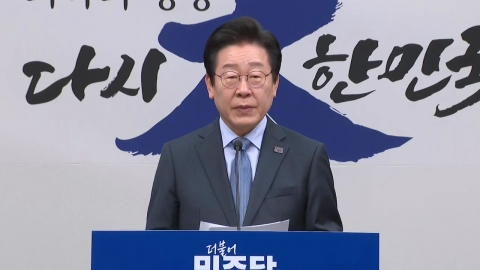
-
이재명 "추경 형태·범위 논의 유연해도 된다"
’지역화폐 추경’ 반대하는 여당…’담판’ 나서나
’보편지급·지역화폐’ 부분도 협상 여지 열어둬





